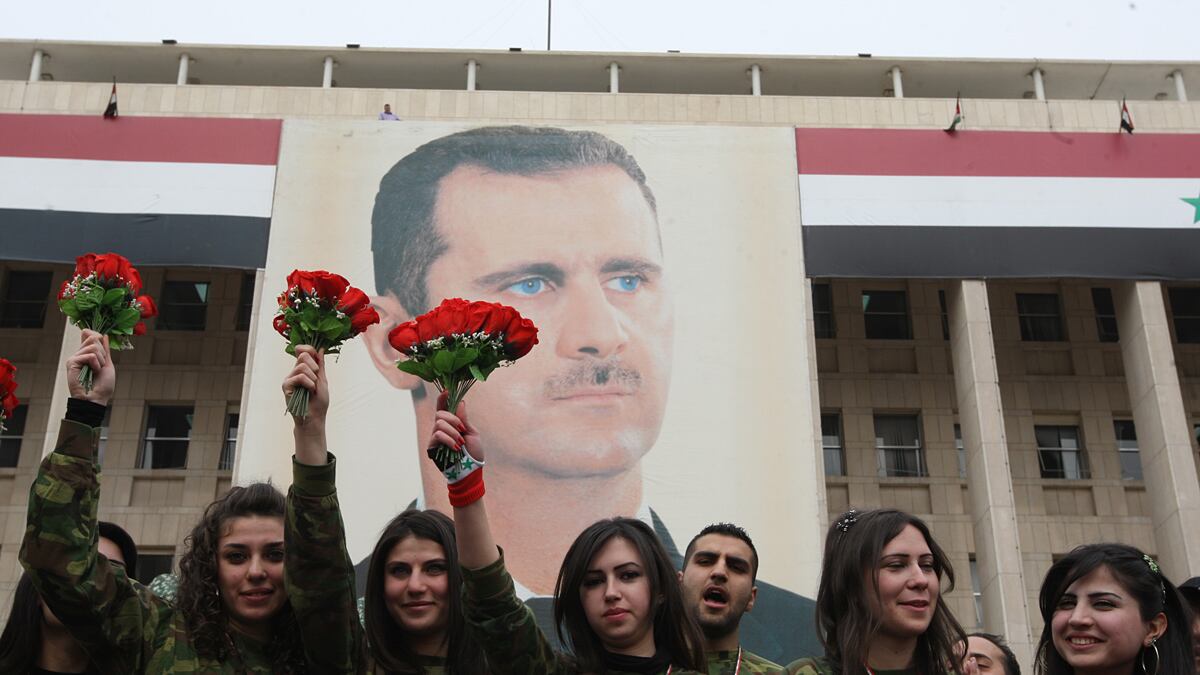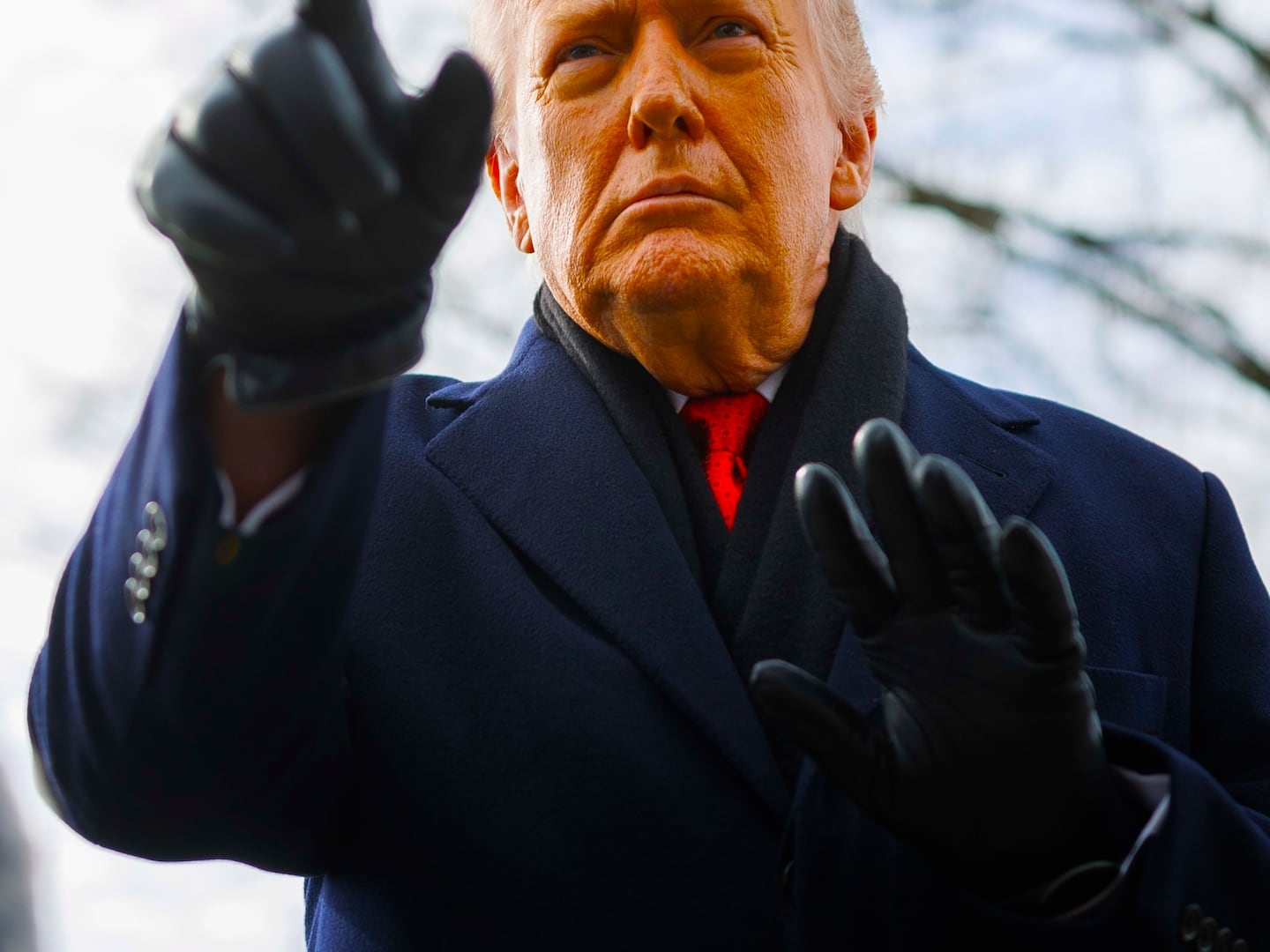It is increasingly clear that Bashar al-Assad and his brother, Maher, are following their father’s playbook from the Hama massacre of 1982. In that year, days of heavy bombardment of residential areas led to a house-to-house pogrom and the disappearance of thousands of men between the ages of 13 and 70. Incredibly, 30 years to the month later, we seem to be seeing a rerun of this slaughter in Homs, a city the size of Boston. There are also worrying signs that such tactics will be replicated in other cities and towns throughout the country. Though many of us warned of such a massacre at the start of the uprising, some 11 months ago, the simple truth today is there is no opposition inside or outside Syria that can stop Assad from continuing his murderous ways.
The actions of the international community have been too little, too late. The latest suggestions among policymakers, experts, and talking heads include tightening economic sanctions, recognizing the opposition Syrian National Council, and forming a “Friends of Syria” international contact group, which will meet for the first time on Feb. 24 in Tunis. Such actions could have been implemented months ago, as all can be executed independently and without the approval of the increasingly stubborn Russia and China.
Despite the disappointment of the latest Russian and Chinese vetoes in the Security Council, last weekend’s Arab League meeting has again sought to turn to the United Nations by proposing a hybrid Arab League–U.N. peacekeeping mission. This marks the second time the Arab League has asked the international community to intervene in the so-called Arab Awakenings; the first instance was in Libya. While the idea was treated with skepticism and rejected by Assad, it has gained in relevance as Arab and Western states, and Russia in particular, increasingly focus on stopping the violence. The latest Russian reaction to the proposal has indicated Moscow’s willingness to join the peacekeeping mission if there is agreement with the Assad regime. It may be the first sign of convergence in the positions of the key international players.
However, Assad has made certain that there is no peace to keep. If the proposal is to succeed, Moscow will have to lean heavily on Damascus to stop its military crackdown immediately and press for Assad’s forces to move back to their barracks. Although there is still no consensus among the Syrian opposition, their Arab and Western supporters, and Russia and China on the political transition in Syria, Moscow may just see here the opportunity to frame the international response to the Syrian crisis on its own terms. It may coincide with a greater willingness by Assad’s opponents in the West and Arab world to accept actions to defuse the crisis before the ouster of Assad.
Separately, there have been calls for international military intervention, following the example of Kosovo, where President Clinton launched a NATO air campaign without U.N. approval to protect Kosovars from the Serbian aggressors. At the time, Russia and China got little support for a Security Council censure of the West’s actions. It is under a similar “humanitarian emergency” that some in the Washington Beltway are encouraging Obama to act in Syria without a U.N. Security Council mandate and de facto outside the framework of international law. Many are invoking the doctrine of “responsibility to protect,” or RtoP, to justify immediate and unsanctioned action. The achievement of RtoP in the 2005 U.N. World Summit was a landmark occasion, which I was fortunate enough to work on as a U.N. staffer. The unanimous decision of heads of states and governments to mandate the international community to take collective action when a state was “manifestly failing” to protect its populations from genocide, war crimes, ethnic cleansing, and crimes against humanity was a truly groundbreaking achievement.

However, advocates of international military intervention in Syria using the RtoP doctrine should take a closer look at its implementing provisions. One of these, crucially, is that the last resort of military action should be through the Security Council and in accordance with the Charter of the United Nations. Tension, therefore, between the U.N. Charter’s protection of human rights and its preservation of state sovereignty has again come to the fore, especially as evidence mounts that Assad’s regime is committing crimes against humanity in a systematic and widespread fashion.
International military action outside an international legal mandate is exactly what Assad wants. It will split the international community further and deepen the mistrust between the great powers, particularly the West and Russia, China, and the other BRICs. Unlike Libya or even Iraq, though, the differences will be along one of the region’s primary axis points: the Syria fault line. It also would seriously threaten to unravel the consensus that RtoP achieved in 2005. Assad and his regime surely would also seek to present a future Iraq-like situation in Syria, in which a “coalition of the willing” chose to act to oust an Arab leader but ended up killing civilians and fueling a bloody civil war.
As difficult as it is proving to be, international intervention in Syria needs to be aligned with international law. Many have given up hope that Russia and China can be part of the consensus and that international military intervention is necessary in Syria. However, we must try again.
Syrian protesters dubbed last Friday “ Russia Is Killing Our Children,” demonstrating that Syrians are increasingly hostile to Putin’s Russia. The rest of the Arab world is following suit. The single most important thing both Russia and China can do now, therefore, is to join international efforts to stop the violence in Syria. That means implementing the Arab League Plan of Action of Nov. 2, which Assad signed and which the Russians say they support.
The Middle East region has seen too much international military intervention that does not advance the principles of legality, justice, and the promotion of human rights. Now is the time for the international community to act collectively according to such principles. In Syria, it has the ultimate responsibility to protect civilians and to save lives by preventing the most egregious mass violations of human rights in Homs and other towns and cities. Indeed, it is precisely by following these principles that the international community distinguishes itself from the Assad regime.






